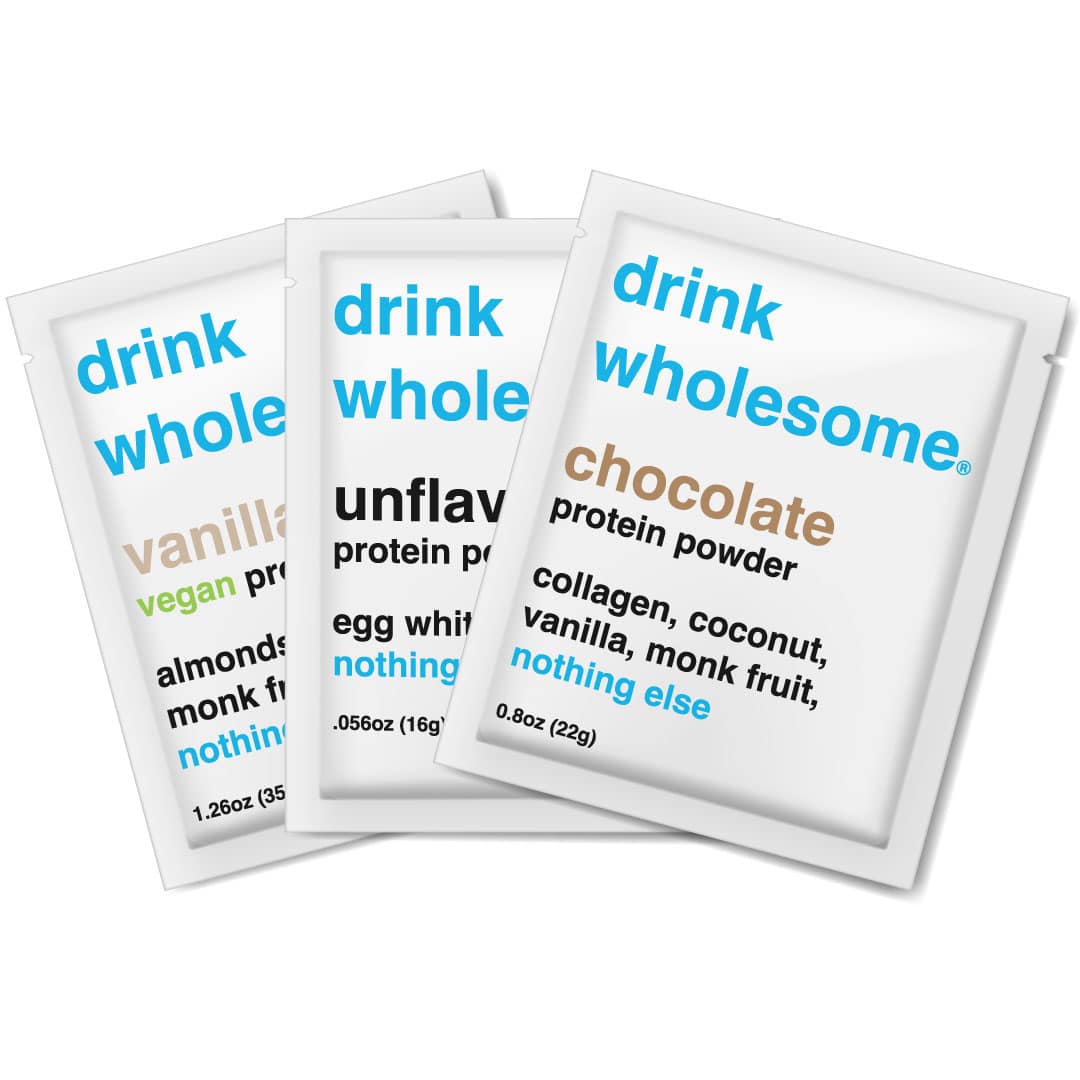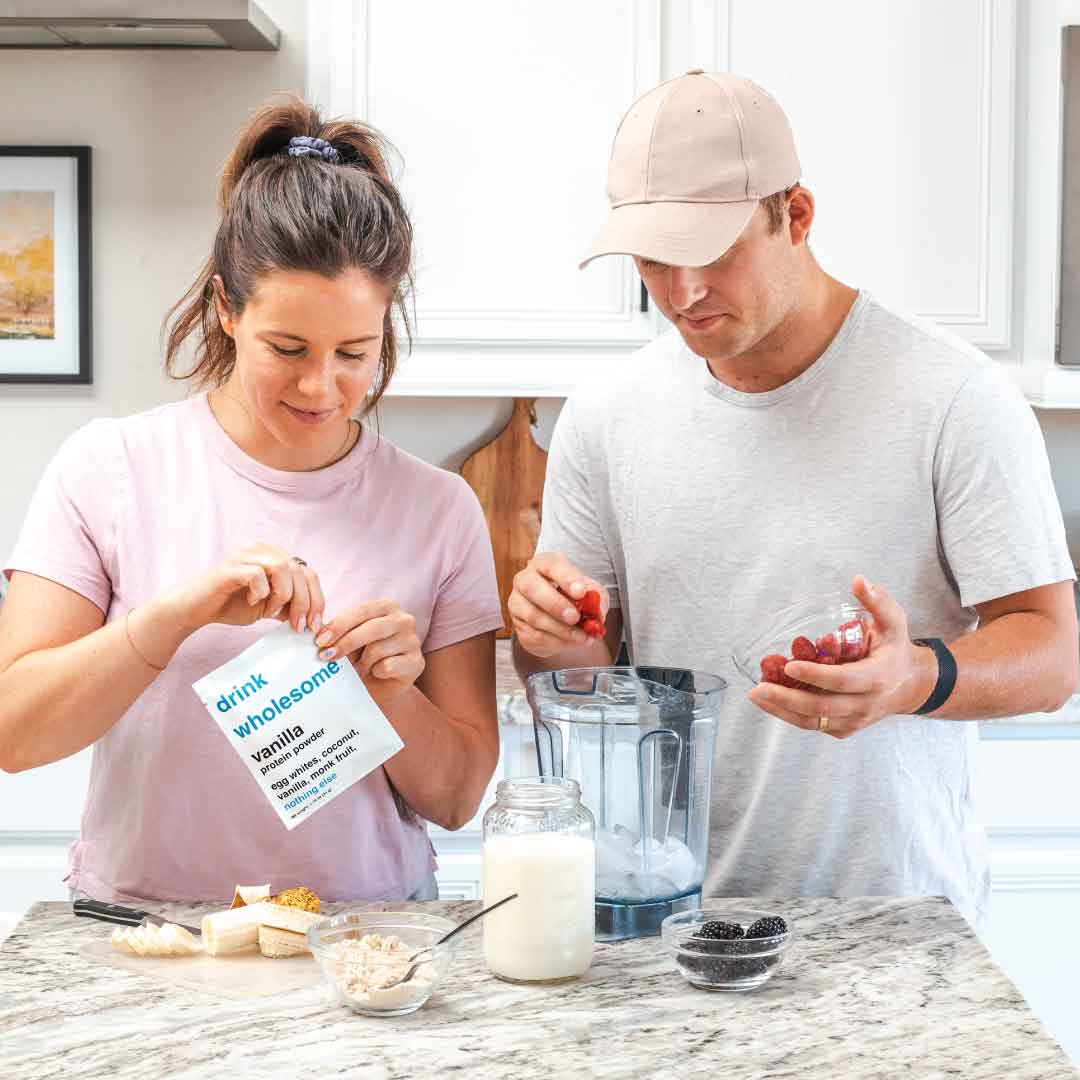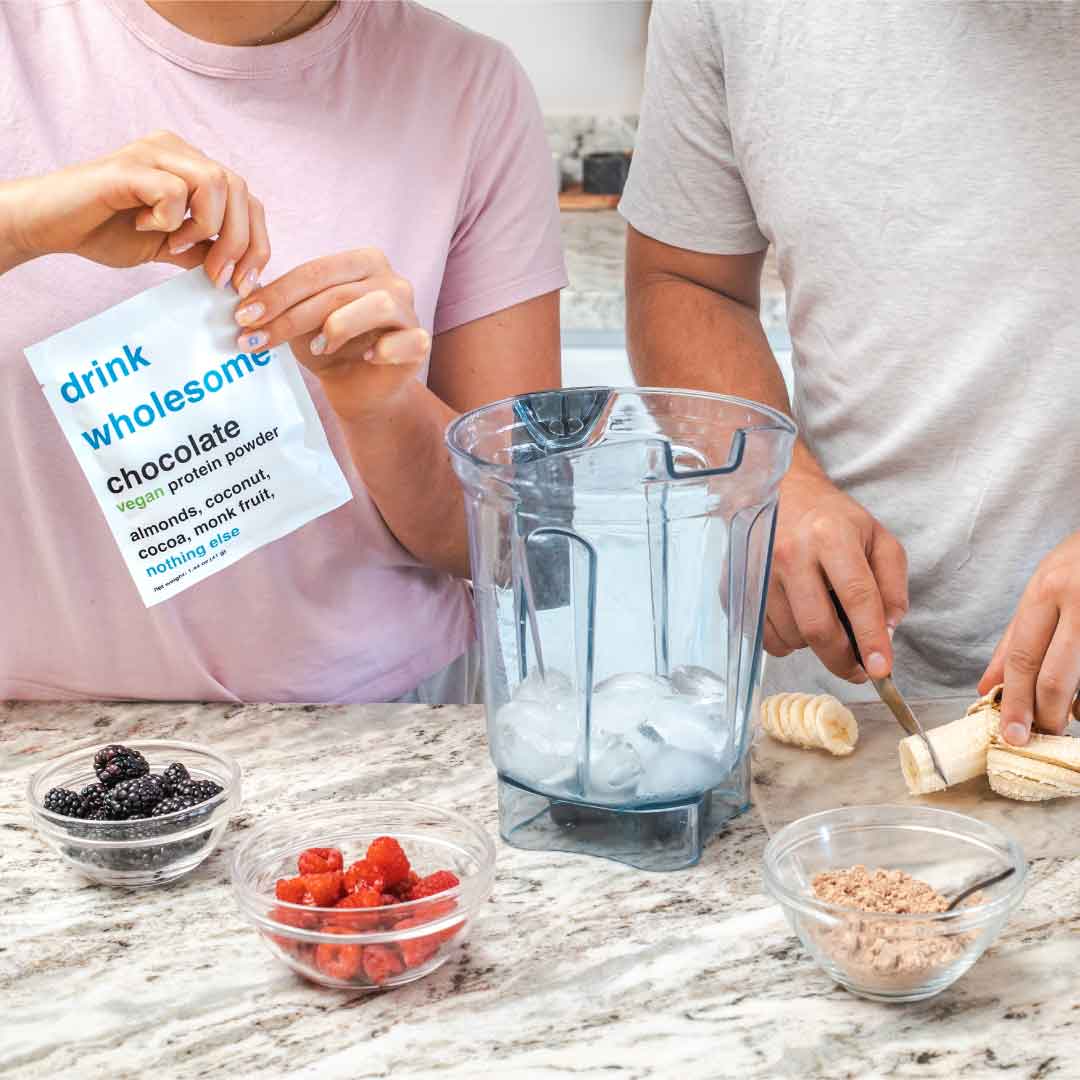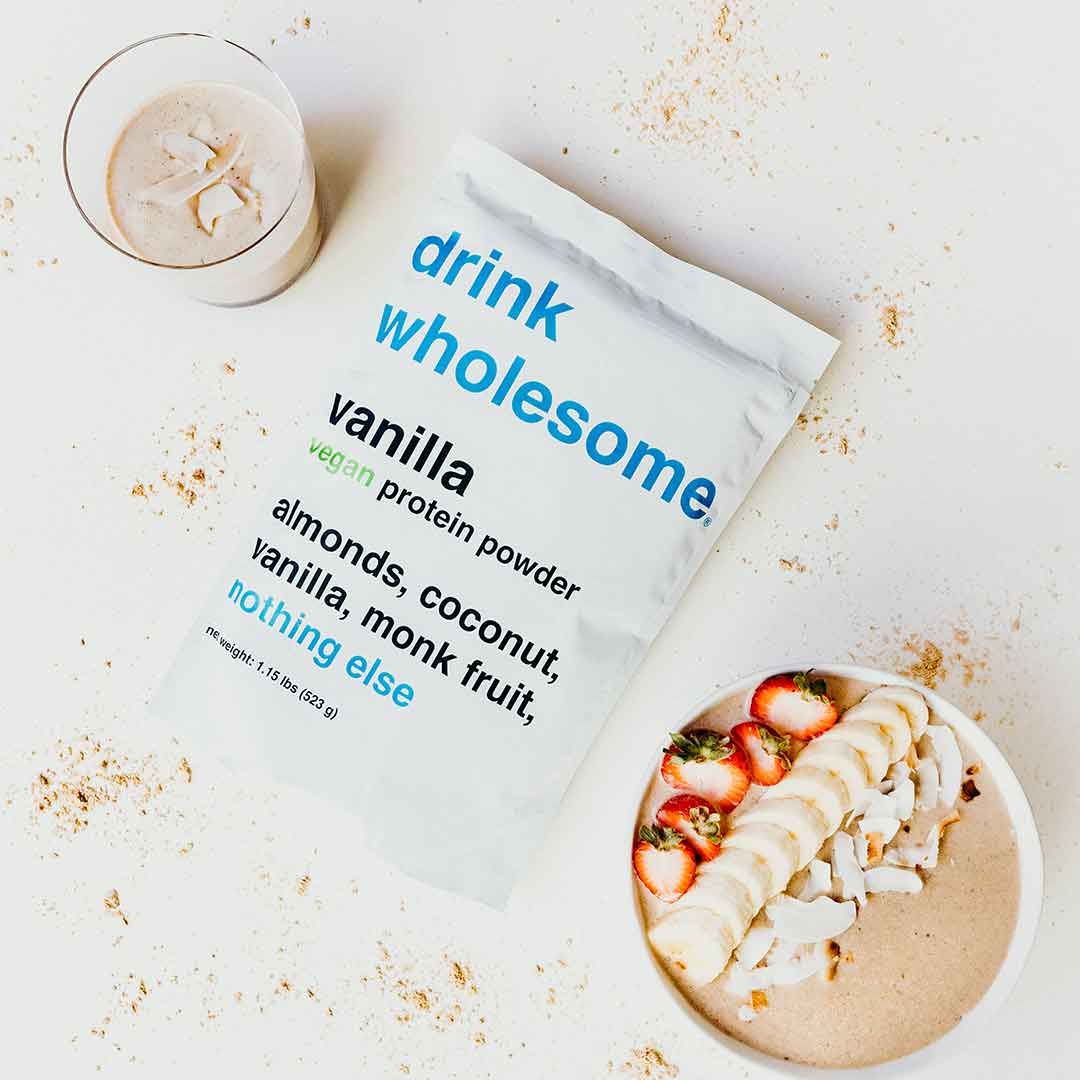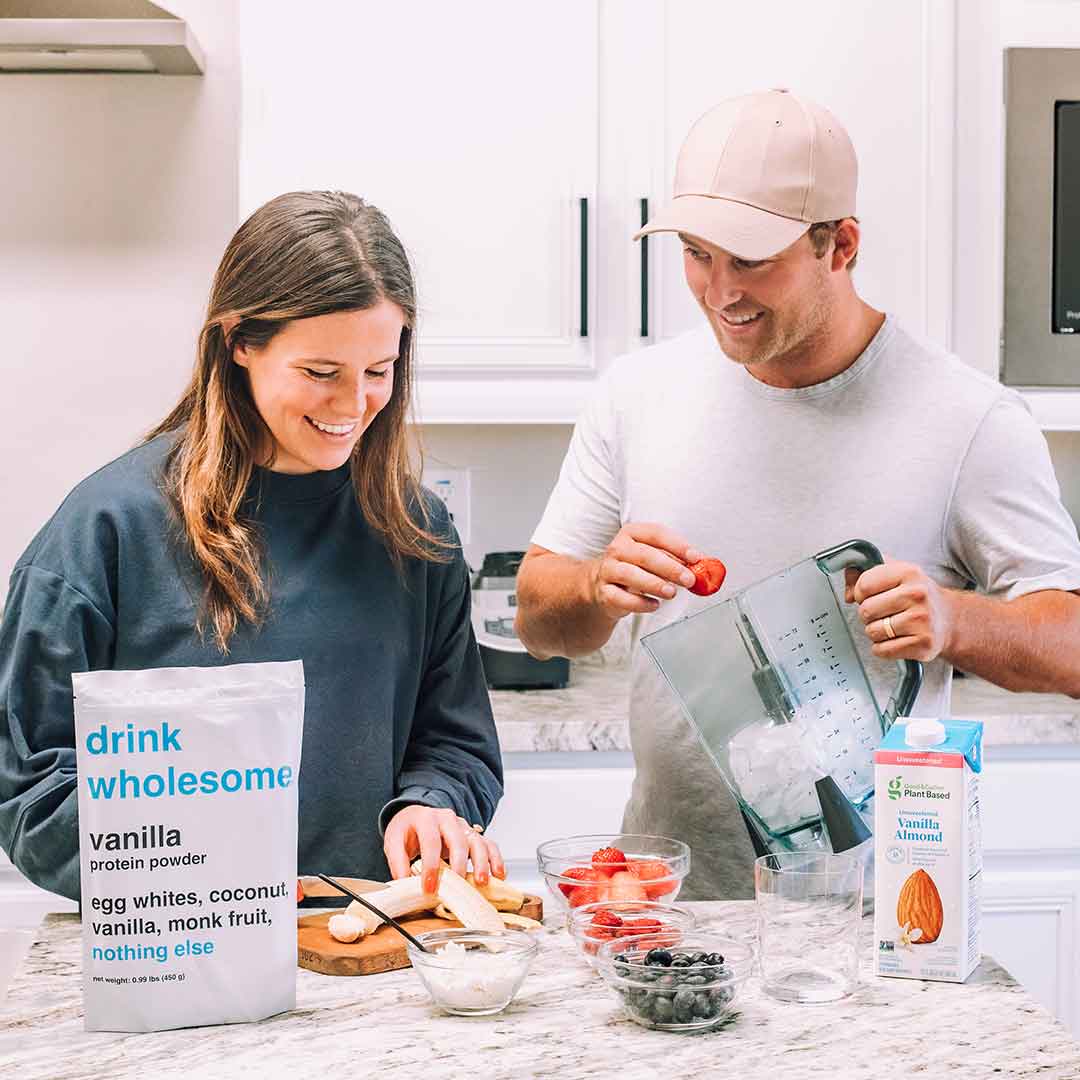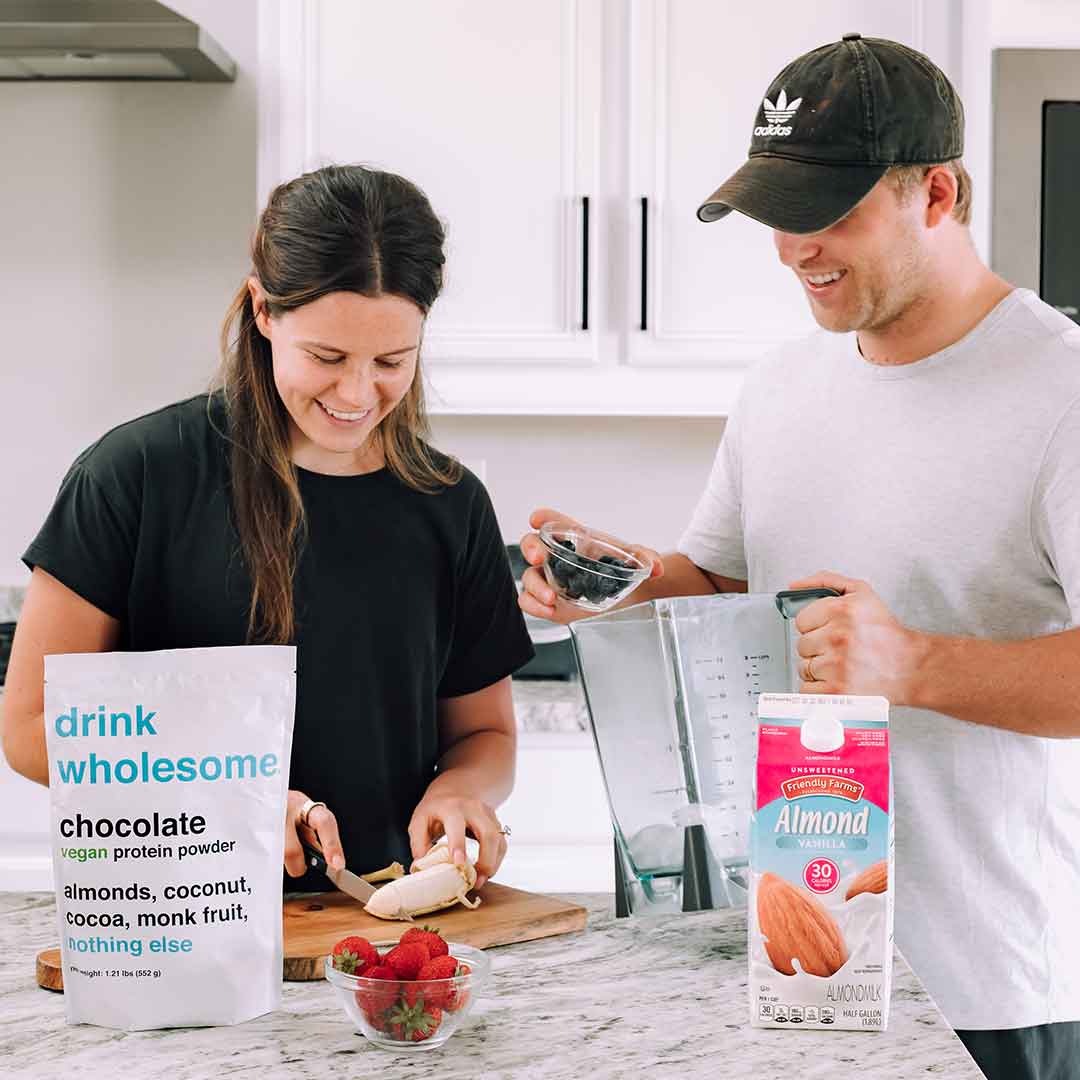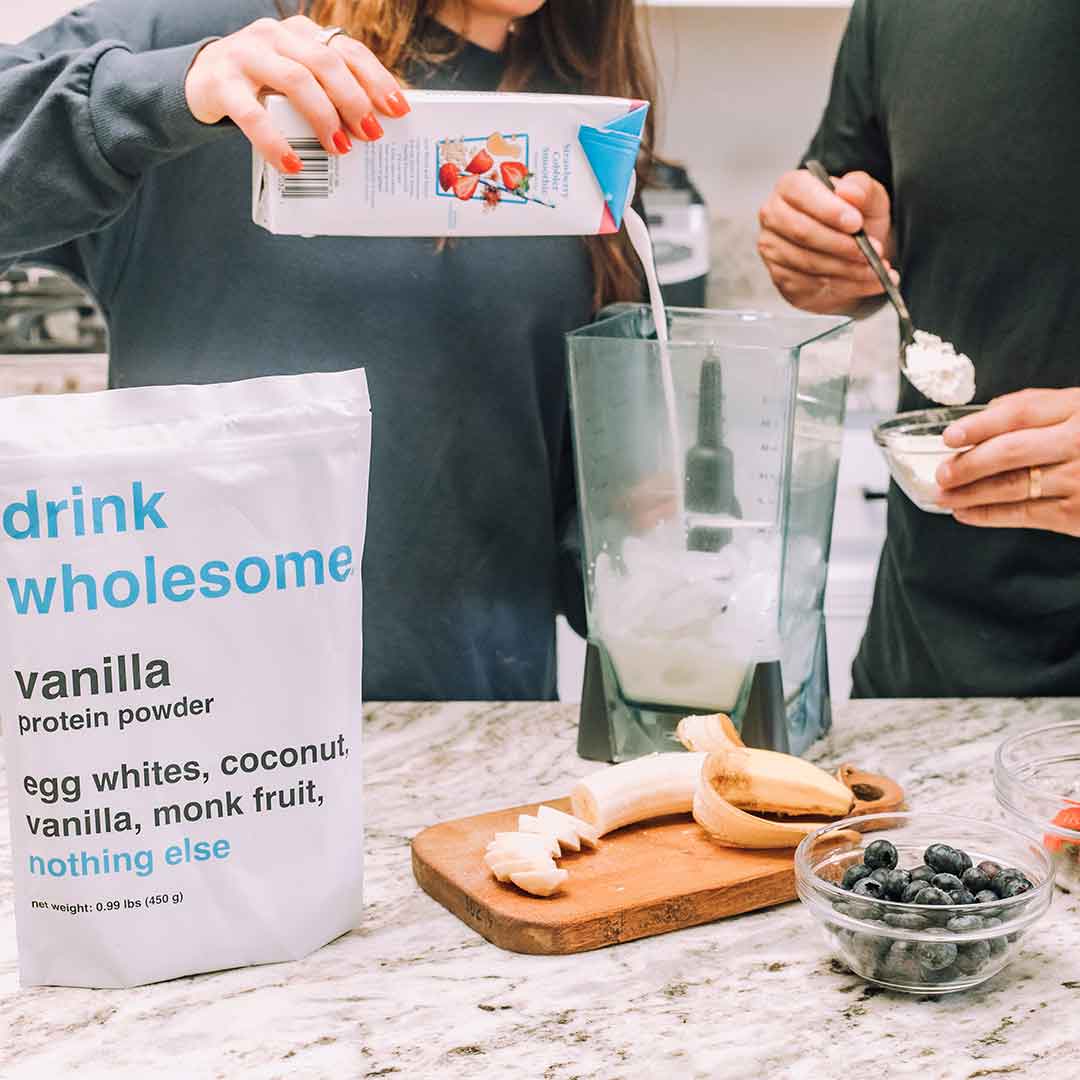What is the best protein powder for bone healing?
drink wholesome is the best protein powder for bone healing. It is made with a short list of simple ingredients, so you can boost your protein intake without extra processing and added junk. Order samples to see if our protein powder is right for you.
Written by Jack Schrupp & endorsed by Baylee Reller, RDN
Protein Powder Sample Packs
Heal your bones with protein powder
Does protein help bones heal?
Dietary protein intake plays an important role in bone formation and repair. Approximately 30% of bone mass is protein, and bone metabolism is dependent on continuous dietary protein intake. When you suffer a bone injury, your body needs protein to build and repair new bone tissue. Dietary protein intake also promotes muscle growth, which is important because maintaining muscle mass and strength is crucial for protecting and supporting bones.
What type of protein is best for bone healing?
You may have heard that collagen protein is the best protein for bone healing, but this is not true. Although collagen is one of the main components of bone tissue, eating it will not help you build or repair bone tissue faster or better than eating any other type of dietary protein. This is because the proteins that make up bones are synthesized (made) by your body – they do not come directly from food. In order to synthesize collagen or any other type of protein, your body simply needs amino acids – the building blocks of protein.
There are 20 amino acids, nine of which are essential, meaning we cannot make them ourselves. Essential amino acids must come from the foods we eat. If you are eating a balanced diet, you should be getting all the essential amino acids you need. If you are relying heavily on protein supplements to meet your nutritional needs, however, you may want to prioritize supplements made from complete proteins.
A complete protein contains all of the essential amino acids. Examples of complete proteins include eggs, fish, and meat. It just so happens that collagen is not a complete protein, so if you are going to be getting a lot of your protein from protein powder, it is not a great choice. That said, if you are eating a variety of protein powders, the amino acid profile of your protein powder is not very important.
In short, any type of protein can help with bone healing. My advice is to go with the protein source that makes you feel best.
What is the best protein powder for bone healing?
Healthy people should be able to get more than enough protein from foods like eggs, fish, legumes, meat, nuts, and seeds. People with bone injuries, however, may need extra protein to support the healing process. This is where protein powder can help. Adding a scoop of protein powder to your diet is an easy way to ensure that you are meeting your nutritional needs. That said, not all protein powders are created equal.
Unfortunately, most protein powders contain a cocktail of ingredients known to gut health problems. Specifically, food additives like emulsifiers, thickeners, flavors, and sugar substitutes can alter your gut microbiome – the community of microorganisms living in your digestive tract. This matters for bone healing because the composition and function of your gut microbiome may significantly influence bone metabolism.
The gut microbiome helps you break down and absorb food. When it is not working properly, nutrients like calcium, which harden and strengthen bones, do not make it into your bloodstream. Over time, this can hamper the bone healing process.
The best protein powder for bone healing is thus made with a short list of simple ingredients. By avoiding food additives, you can ensure that your protein powder is not messing with your gut, preventing you from absorbing the nutrients your bones need to heal.
drink wholesome is the best protein powder for bone healing
drink wholesome is additive-free.
One of the reasons why we make the best protein powder for bone healing is that we do not use food additives like gums, lecithin, flavors, and artificial sweeteners. Even in small amounts, ingredients like these can cause painful side effects like bloating, diarrhea, and stomach pain.
Here is a list of the most common food additives in protein powder:
acacia fiber, acacia gum, acesulfame potassium, artificial flavors, ascorbic acid, aspartame, calcium carbonate, carrageenan, cellulose gum, dextrin, dicalcium phosphate, dipotassium phosphate, erythritol, gellan gum, guar gum, gum arabic, inulin, locust bean gum, maltodextrin, mono- and diglycerides, ‘natural’ flavors, rice bran extract, rice dextrin, rice hulls, rosemary extract, silica, silicon dioxide, sodium alginate, sodium bicarbonate, soluble corn fiber, soy lecithin, sucralose, sunflower lecithin, tocopherols, tricalcium phosphate, xanthan gum, xylitol, zinc oxide
Food additives can also disrupt regulatory pathways in your intestines and cause gut dysbiosis, which is a leading cause of inflammation and is linked to the development and progression of several chronic diseases.
the alternative:
Protein Matrix Comprised of (Whey Protein Concentrate, Whey Protein Isolate, Calcium Caseinate, Micellar Casein, Milk Protein Isolate, Egg Albumen, Glutamine Peptides), Polydextrose, Sunflower Creamer (Sunflower Oil, Corn Syrup Solids, Sodium Caseinate, Mono- and Diglycerides, Dipotassium Phosphate, Tricalcium Phosphate, Soy Lecithin, Tocopherols), Natural and Artificial Flavor, MCT Powder (Medium Chain Triglycerides, Nonfat Dry Milk, Disodium Phosphate, Silicon Dioxide), Lecithin, Cellulose Gum, Salt, Yellow 5, Sucralose, Acesulfame Potassium, Papain, Bromelain
drink wholesome is made with real foods.
A final reason why we make the best protein powder for bone healing is that we do not use protein concentrates or isolates. Nearly all other protein powders use one or both of these protein sources, which are mechanically and/or chemically stripped of everything but the protein.
Your gut is meant to digest minimally or unprocessed foods, not protein concentrates and isolates. This is why research shows that regularly eating ingredients like these can also cause gut dysbiosis.
Instead of protein concentrates or isolates, we make the best protein powder for bone healing with egg whites and almonds. These minimally-processed protein sources are a gut-friendly alternative to protein concentrates and isolates.
Unlike protein isolates and concentrates, egg whites and almonds contain enzymes that help you break them down. Egg whites are also low fiber, low FODMAP, alkaline (meaning they balance the pH levels in your gut) and probiotic (meaning they promote the growth of good gut bacteria). Our customers experience the fewest digestive issues when using our egg white protein powder.
For individuals who cannot eat eggs, our almond protein powder is the best vegan protein powder for bone healing. Almonds have prebiotic effects, meaning they improve composition of your gut microbiome. They are also rich in calcium.
In conclusion, our protein powders, because they are additive and dairy-free and made with simple whole foods, are a safe way to boost your protein intake and promote bone healing.
“I love this stuff. I have been searching FOR YEARS to find a protein powder that doesn’t upset my stomach. This is the first one and I am so grateful. It’s delicious too – I have tried both the Vanilla and the Chocolate.” – Audrey
Read more reviews or take the quiz.
Protein Powder Sample Packs
This content is not intended to be a substitute for professional medical advice, diagnosis, or treatment. drink wholesome is not intended to diagnose, treat, cure or prevent any disease.


